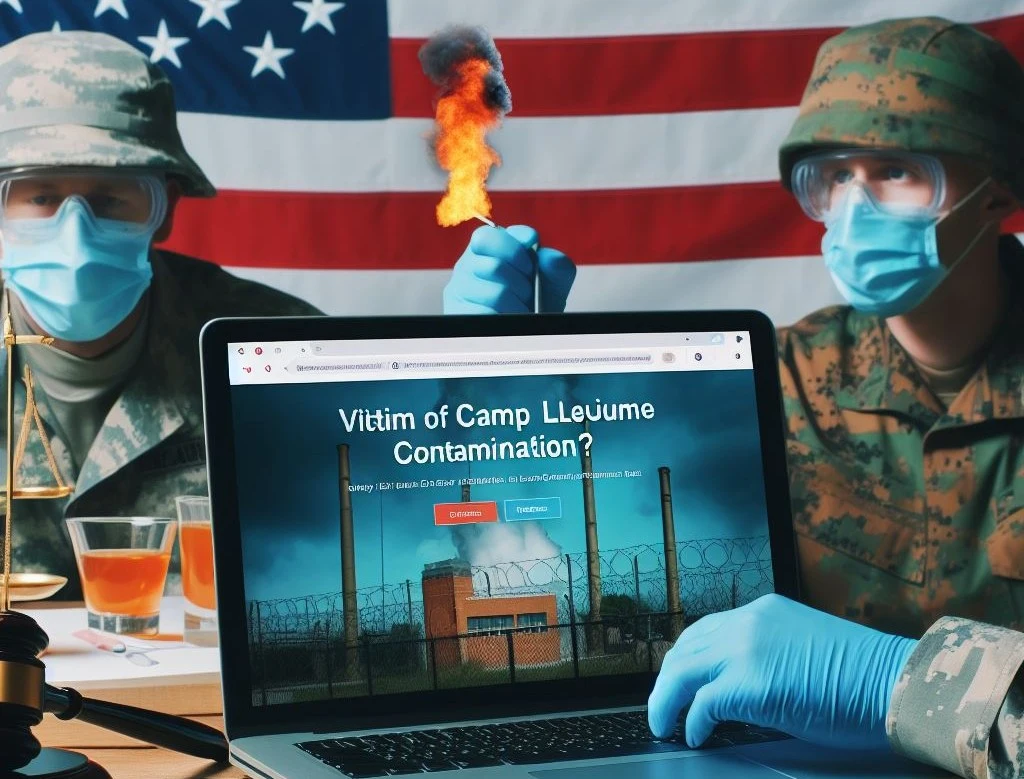Camp Lejeune, a United States Marine Corps base located in North Carolina, has been the center of controversy due to water contamination issues spanning several decades. Thousands of military personnel, their families, and civilian employees stationed at Camp Lejeune were unknowingly exposed to toxic chemicals in the drinking water, leading to serious health consequences.
If you or a loved one have suffered health issues due to the Camp Lejeune contamination, seeking legal recourse may provide a path to justice and compensation. Although you cannot take back the hands of time, the compensation obtained can be used to settle the resulting medical bills and improve your quality of life.
In this article, we’ll explore the background of the Camp Lejeune contamination, the health effects associated with exposure, and steps you can take to pursue legal action.
Background of Camp Lejeune Contamination
Between the 1950s and 1980s, Camp Lejeune’s drinking water supply was contaminated with various hazardous substances, including volatile organic compounds (VOCs) such as trichloroethylene (TCE) and perchloroethylene (PCE), as well as benzene and other toxic chemicals. The contamination stemmed from leaking underground storage tanks, industrial spills, and improper disposal practices on the base.
Despite evidence of water contamination dating back to the 1980s, the extent of the problem was not fully acknowledged by the U.S. Department of Defense until the late 1990s. It wasn’t until 2012 that Congress passed the Janey Ensminger Act, named after a young girl who died of leukemia linked to the contamination, providing medical care and screening for affected individuals.
Health Effects of Camp Lejeune Contamination
Exposure to the toxic chemicals present in Camp Lejeune’s drinking water has been associated with diverse health issues, including:
- Cancer
- Birth defects
- Neurological disorders
- Reproductive health issues
How to Seek Legal Recourse for Camp Lejeune Contamination
If you believe you’re a victim of the Camp Lejeune contamination, you may be eligible to seek legal recourse for damages related to medical expenses, lost wages, pain and suffering, and wrongful death. Here are the steps you can take to pursue legal action:
Gather Medical Documentation
Document any health issues you or your family members have experienced as a result of the Camp Lejeune contamination. Obtain medical records, diagnosis reports, treatment histories, and any other relevant documentation from healthcare providers. This information will be crucial for establishing the extent of your injuries and calculating the compensation you are entitled to receive.
Consult with an Attorney
You cannot fight this cause by yourself as it is marred with complexities and points to prove. Hence, you would need the backing of a lawyer. There are leading attorneys in Camp Lejeune lawsuits ready to assist you. These attorneys are typically experienced in this kind of lawsuit. Therefore, they can evaluate your case, explain your rights, and guide you through the legal proceedings. They’ll also represent you in court.
Determine Eligibility for Compensation
Various compensation programs and legal avenues may be available to Camp Lejeune victims, depending on factors such as military service, residency at the base, and specific health conditions. One thing your attorney will help you do is assess your eligibility for benefits under programs like the Camp Lejeune Family Member Program, Veterans Affairs (VA) disability benefits, or litigation against responsible parties.
File a Claim or Lawsuit
Depending on the circumstances of your case and the applicable statutes of limitations, you may be able to file a claim for compensation through the Department of Veterans Affairs (VA), the Federal Tort Claims Act (FTCA), or a private lawsuit against the responsible parties, including the U.S. government and private contractors.
Furthermore, consider joining or participating in class action lawsuits filed on behalf of individuals affected by the Camp Lejeune contamination. Class actions consolidate similar claims into a single lawsuit, allowing affected individuals to collectively seek compensation for damages.
Advocate for Comprehensive Healthcare
In addition to seeking compensation for damages, you may advocate for Camp Lejeune victims to have access to comprehensive healthcare services. This may include medical monitoring, treatment for related health conditions, and support services for affected individuals and families.
Ensure you stay informed about developments related to the Camp Lejeune contamination, including updates on legal proceedings, settlements, and available resources for affected individuals. Organizations like the Agency for Toxic Substances and Disease Registry (ATSDR) and advocacy groups can provide valuable information and support.
Conclusion
The Camp Lejeune contamination represents a tragic chapter in American military history, with far-reaching consequences for the health and well-being of thousands of service members and their families. If you or a loved one have been affected by the Camp Lejeune contamination, taking legal recourse may provide a means to hold those responsible for the negligence accountable and ensure you receive the compensation and justice you deserve.
